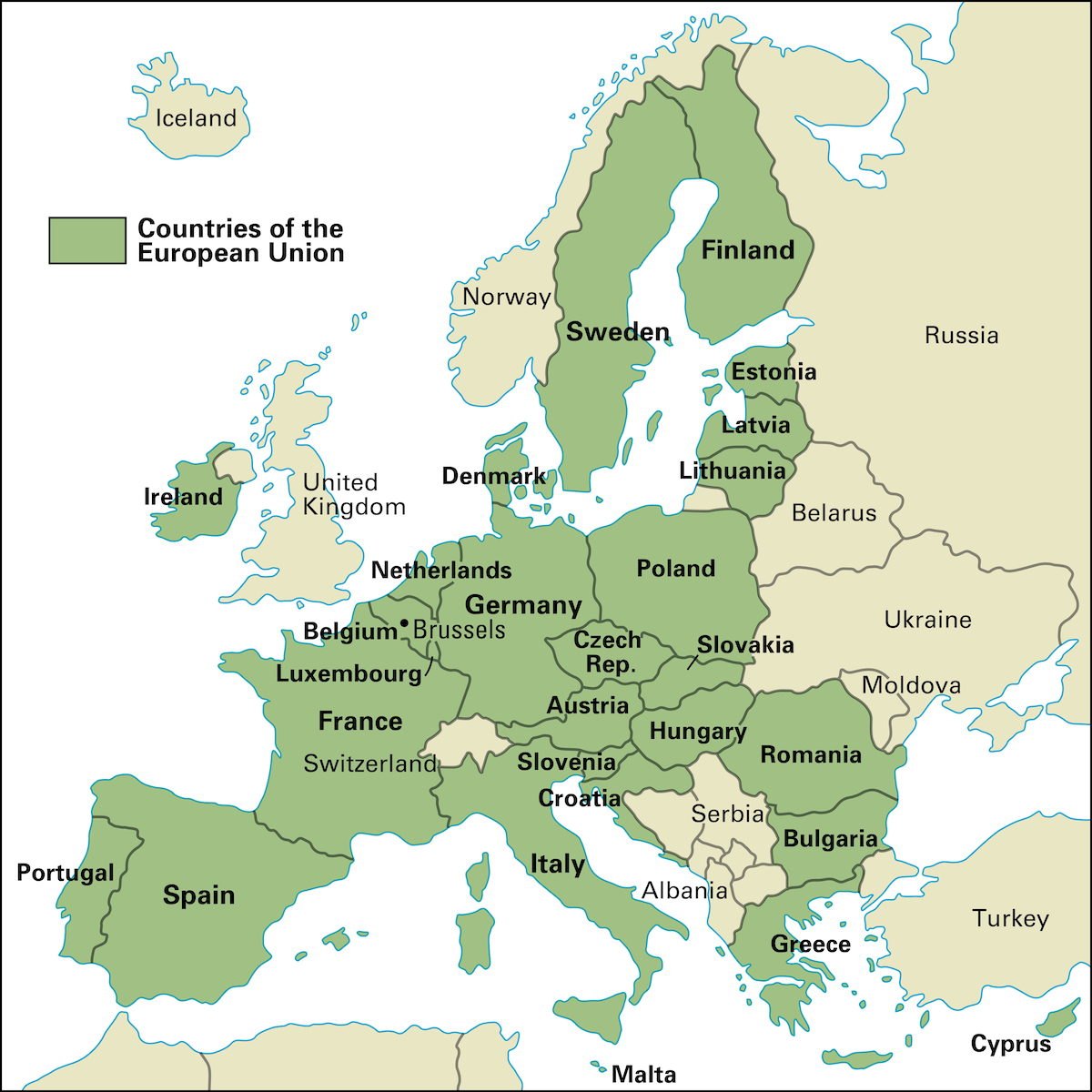Schengen Agreement is an agreement between European nations that established a large area in which people can travel freely from one country to another. Belgium, France, Luxembourg, the Netherlands, and West Germany (now part of Germany) first signed the agreement on June 14, 1985, in the town of Schengen, Luxembourg. The countries agreed to form a mutual border-free zone, now known as the Schengen area. The Schengen area has grown dramatically as additional countries have joined the agreement. Today, the area includes nearly the entire European Union (EU).

When the Schengen Agreement came into effect in 1995, it created a single external border for the Schengen area and abolished internal border checks. The participating nations adopted common rules regarding visas, the right of asylum (protection for a person who is fleeing another nation), and checks at external borders. Along with freedom of movement, the Schengen Agreement also brought about increased international cooperation and coordination between police and judicial authorities. The Schengen Information System provides member countries with a shared database of traded and controlled goods, as well as individual people. Police may chase and apprehend suspected criminals across international borders within the Schengen area.
Portions of the Schengen Agreement apply in the United Kingdom and Ireland, but not those relating to border control and visas. The non-EU countries Iceland, Norway, and Switzerland are also now part of the Schengen area. Andorra and San Marino are not part of Schengen, but they no longer have border checks.
In 2015, a refugee crisis caused by violence in the Middle East led many Schengen area nations to temporarily restore border controls. Several countries kept those border controls in place or implemented renewed border checks in the late 2010’s and early 2020’s. Beginning in 2020, a number of countries also implemented temporary border controls to slow the spread of the COVID-19 pandemic.
